While talking about ways to help the environment, many automatically think of recycling, taking shorter showers, and maybe biking to class every now and again. What people often forget about is that much of the environmental damage we have done has to do with our eating and food waste habits. You may be just one person, but these few tips, whether big or small, can make you feel a little better about your carbon footprint.
1. Compost
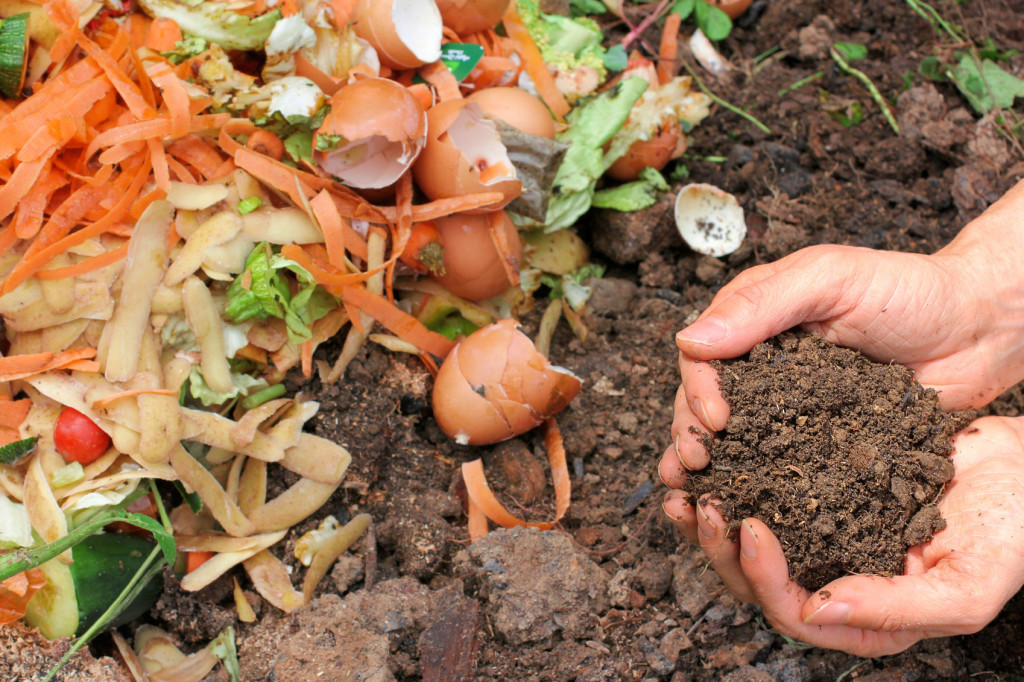
Photo Courtesy of gardeningknowhow.com
This mainly goes for students still eating in the dining hall. If your cafeteria doesn’t have a compost, or if you don’t know if it has a compost, one of the best ways to help out the environment locally and easily is by pushing for composting at your school. It might take a little more effort, but what most people don’t realize is that when organic stuff like food waste goes into a landfill, it produces methane, which according to the EPA is 21 times worse than carbon dioxide for the environment. Even one school cafeteria compost bin can make a difference.
Live in Austin, Texas, or want to spearhead something awesome and environmentally-conscious in your city? Check out Keep Austin Fed, a nonprofit dedicated to finding safe and clean leftovers from restaurants and giving them to those in need.
2. Can’t Fit a Compost Bin in Your Apartment?
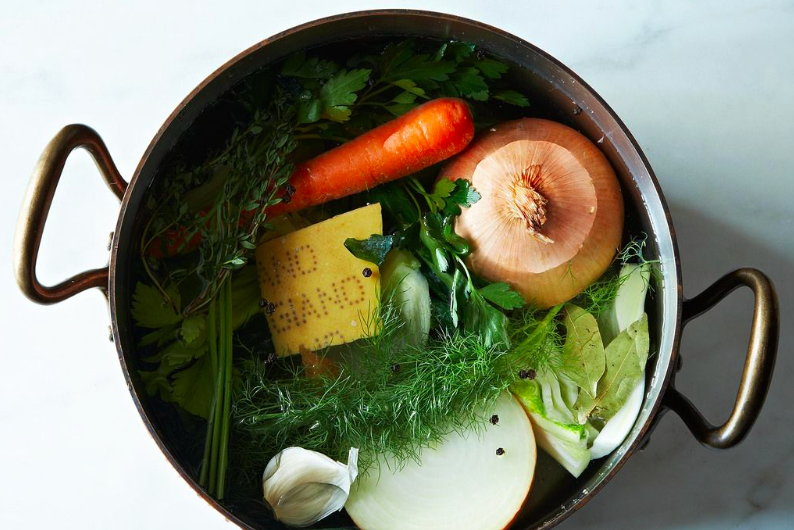
Photo courtesy of food52.com
Quick tip for planning a meal: Start with the most perishable item in your fridge and go from there.
— J. Kenji López-Alt (@TheFoodLab) February 20, 2016
This chick over at Food52 spent an entire week not wasting one piece of food , and even if you aren’t that extreme, I think we can all learn a thing or two about saving scraps and eating our leftovers from what she did. It’s almost impossible to have a compost bin as a student because of the rank smell and the amount of effort, but that doesn’t excuse you from trying to watch what you’re throwing away and how much you’re throwing away.
Want to learn more about food waste? Watch John Oliver’s take on the subject.
3. Eat Seasonally, and Eat Solid Foods
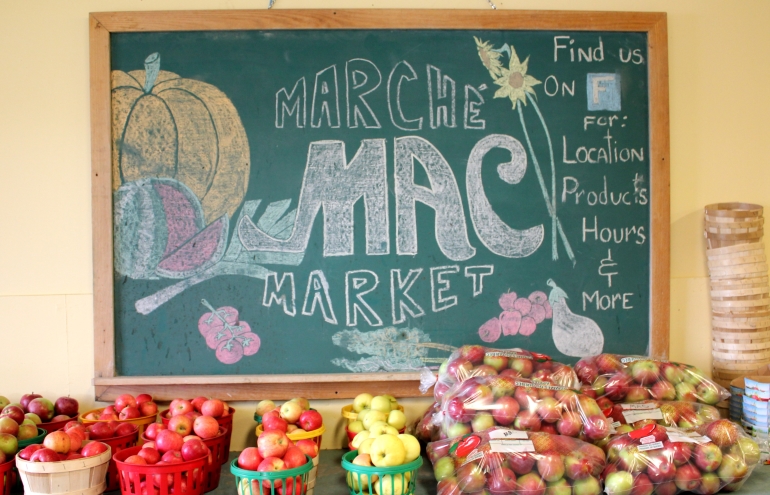
Photo by Carolyn Chin
Have you ever bought an avocado in February in Canada and thought, ‘wow this isn’t the best avocado I’ve ever had’? You shouldn’t be shocked, because you live in a place that does not grow that type of produce, and during a season where few close places have that produce. When you’re eating a veggie or fruit thats been traveling for a long time or has been harvested too early to fulfill consumer demand, it isn’t going to taste as good.
Eating seasonally makes cooking more fun, makes your food taste better and fresher, and not only protects the environment by cutting out travel time, but also you’re putting less pesticides in your body. Another perk? When you’re buying a food with a large supply because it’s in season, it takes less work for the farmers and stores to get it to the shelves, and it costs less.
On the same topic as eating seasonally, maybe consider replacing your monthly juice cleans with a veggie cleanse. Juicing not only is a super unhealthy and expensive way to try and lose weight (when really you’ll just gain it all back), it also takes a toll on the environment. The pulp from the juice goes into landfills, which just like food waste, produces more methane gas due to the lack of air flow.
4. Go Meatless (or Fish-less)
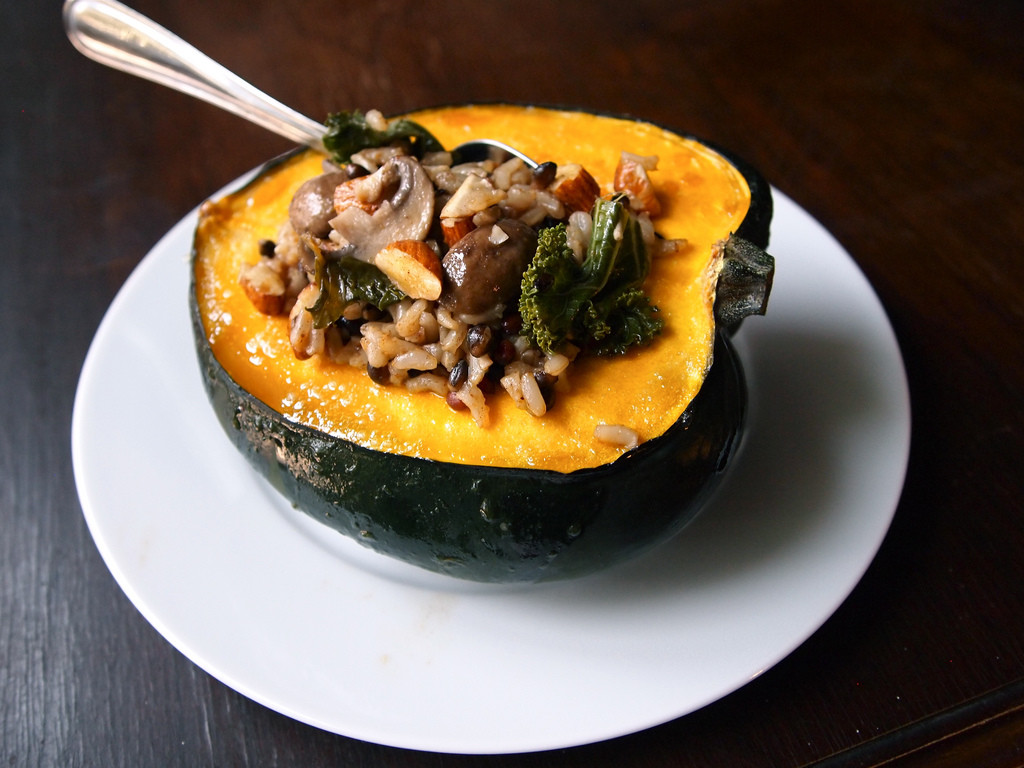
Photo by Kendra Valkema
You hear this all the time, and you’re sick of it. But the environmental impact of the meat industry is exponential. The land it takes up, the water used, and the greenhouse gas emissions in total contribute a major amount to global warming, and the UK is even considering a tax on red-meat. And it’s not just meat, but overfishing going into your to-go sushi cartons has taken a huge toll. The next time you’re craving sushi, think about how long that fish has been in the carton by the time you pick it up in your cafeteria or grocery store, and maybe snag the avocado roll.
Not only is it great for the environment to cut out meat and fish every now and then, but it’s amazing for your health (if you’re replacing the meat with veggies and healthy carbs), and it saves you major cash. And if you’re not about that veggie life, it may be a few cents more, but at least spring for organic milk and meat to make a small impact and feel a little healthier about your choices. Willing to give Meatless Monday a try? Here are some recipes to start you out.
5. Avoid Packaged Stuff (and Packets)

Photo by Stephanie Marshall
The little packets of salt and ketchup and mustard that are sitting on the counter of the cafeteria are major wastes of packaging. Often times, or at least at my own university, the school provides both the smaller packaged products and then additional jars of ketchup and salt shakers, which if used can save a ton of paper and plastic. To go further,
Live off campus? Buy your essentials in bulk to save money and packaging, and try bring lunch from home in tupperware instead of buying stuff that’s been sitting in plastic. Be wary of this though, because wasting what you don’t eat before it expires will only be worse for the environment and your budget. In addition, when possible opt for the fountain soda over the bottle of Diet Coke, or the tap water over bottled.
6. Take Advantage of Food Share
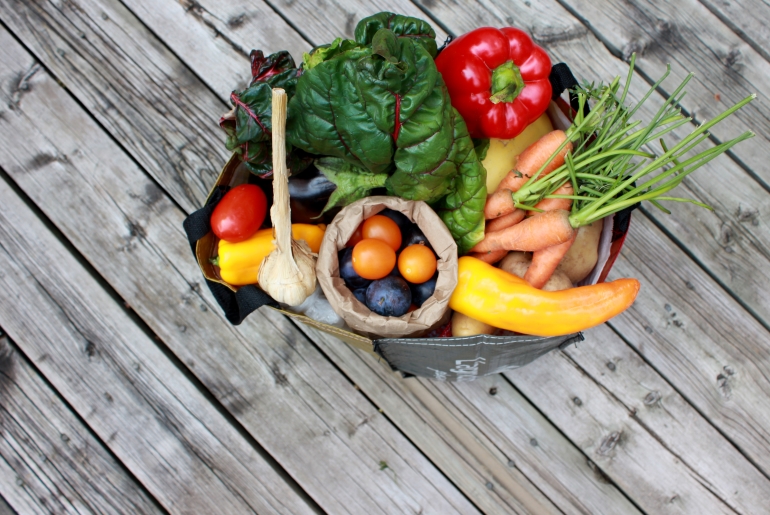
Photo by Carolyn Chin
One of the best ways to get inexpensive, local, and seasonal produce that supports your community is to research if your university or community has a CSA (Community Supported Agriculture) farm share. For example, at McGill University you can pick the type of food basket you would want depending exactly on how many people are in your apartment and what months you’ll be on campus. This is a great way to skip the stop at the grocery store produce aisle and get fresh and local fruits and veggies instead.
7. Steal Silverware (or Just Do Your Dishes)
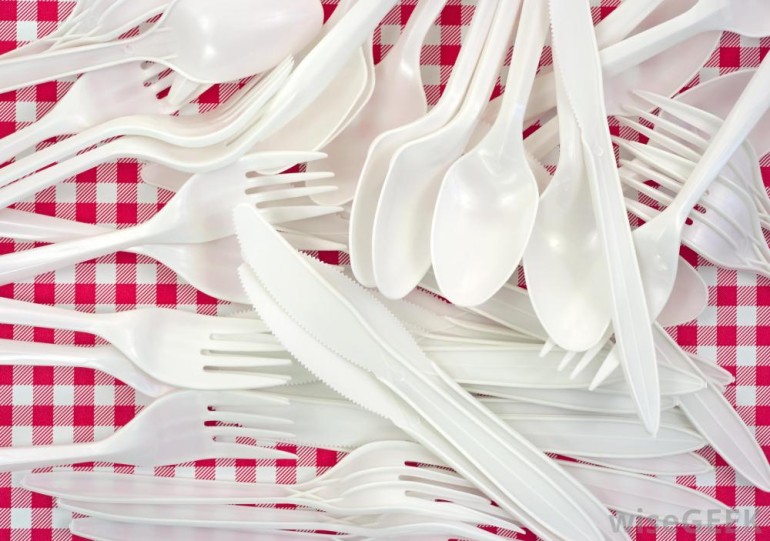
Photo Courtesy of wisegeek.com
Ok hear me out on this. Often times cafeterias at schools have a section of silverware for those who are eating in the dining hall and a section of plastic cutlery for students who are taking their food to-go. Plastic silverware is a waste of landfill space, and if you’re willing to risk being harassed by the person at the cash, you can at least know you’re saving some plastic.
For those living at home, the next time you have a picnic or a dinner party, if you don’t have enough silverware for everyone it might pay to ask your friends to bring their own. Not only is it saving plastic but its saving the few bucks you would spend on plastic forks that you could put towards wine.


